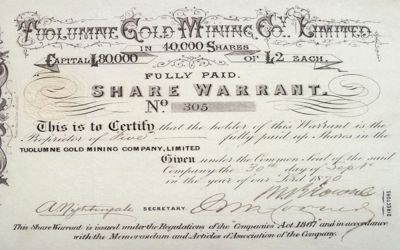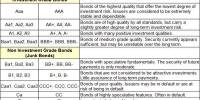Share Warrant
A document that indicates that the bearer of the share warrant is entitled to the specified number of shares is a share warrant. It is a document issued by the company under its common seal, stating that its bearer is entitled to the shares of stock specified therein. It is an instrument issued by a joint-stock company to its shareholders for fully, paid-up shares. It entitles the bearer of the instrument to the shares specified therein. It is an instrument, which signifies that the holder of the instrument is entitled to the shares mentioned in it. Generally, share warrants are easily transferable without any need for a transfer document. Accordingly, the mere delivery of the warrant operates as a transfer of the shares of stock.
A share warrant is a negotiable instrument, issued by the public limited company only against fully paid up shares. It is a document issued under a common seal of a public company stating that the bearer of the instrument has the title of the shares mentioned therein. It is also termed as a document of the title because the holder of the share warrant is entitled to the number of shares mentioned in it. There is no compulsion of the issue of share warrants by the company. The holder of the share warrant can take a share certificate only if he surrenders the share warrant and pays the required fee for the issue of share certificate. After collection of the amount of the shareholder wishes, company can issue warrant against the share. Generally, the holder of the share warrant is not a member of the company, but if the articles of association of the company provide it, then the bearer is deemed to be a member of the company.

Fig: A sample Share Warrant paper (Tuolumne Gold Com. Ltd.)
The following conditions should be satisfied with issuing share warrants.
- Only a public company can issue share warrants.
- It a bearer document, which can be transferred by mere delivery.
- It must be authorized by the Articles of Association.
- Only public limited companies have the right to issue a share warrant.
- The shares must be fully paid-up.
- Prior approval of the Central Government is required for issuing Share Warrant.
- The approval of the Central Government is necessary.
Advantages
- The shares mentioned in it are transferable by mere delivery of the warrant. Registration is not necessary.
- It is a negotiable instrument.
- Banks accept share warrants as security for loans.
- The company may provide for future dividend payments by attaching dividend coupons with the share warrants.
Disadvantages
- The bearer of the warrant is not a member of the company.
- The company should be very careful while printing and keeping them in safe custody.
- The stamp duty on share warrant is very heavy.
- Prior approval of the Central Government is essential.
















